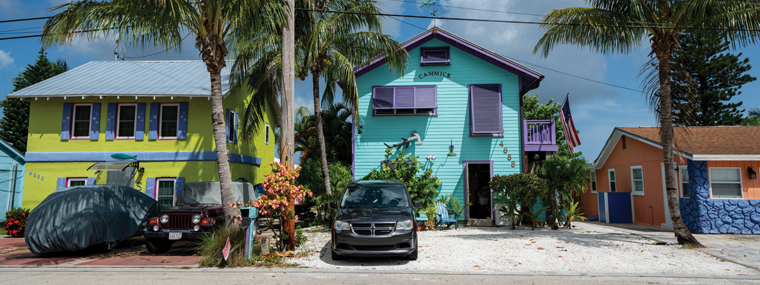
Do Homeowners Have an Absolute Right to Rent Their Homes on Airbnb?
By Katherine E. Cook / Published December 2020

While the thought of letting complete strangers stay in your house could be frightening to some, to many this has become the new way of vacationing thanks to Airbnb, VRBO, and the like. Even the COVID-19 pandemic has increased the popularity of Airbnb as people try to escape the dense populations of major cities and want to avoid the large crowds at a hotel. Now more than ever, vacationers are looking for alternatives to their big city hotels and seeking homes in small town America as places to escape the COVID-19 pandemic. While large hotels are struggling, Airbnb continues to see steady bookings, especially in rural America.
Also, in light of the COVID-19 pandemic, many people are looking for new ways to bring in extra income. Homeowners can utilize Airbnb to rent a room or their entire home out for money. But, what if these homes are located in a community with homeowners association restrictions? Can a homeowners association stop homeowners from renting their homes out on Airbnb?
These issues are not new to 2020, but the COVID-19 pandemic has certainly magnified the use of Airbnb. This year also brought new case law, making it a good time for community association managers to get updated on the laws regarding Airbnb rentals in their communities.
Laws Governing Short-Term Rentals
Back in 2017, the Florida First District Court of Appeal issued its first opinion on a community association’s ability to prevent its homeowners from using Airbnb to rent out their home for a short term. The case Santa Monica Beach Prop. Owners Ass’n, Inc. v. Acord, 219 So. 3d 111, 116 (Fla. 1st DCA 2017), surprisingly found in favor of the homeowner. Specifically, the court held the homeowner’s Airbnb rental was considered as residential use and complied with the association’s restrictions. The court stated as long as the homeowner’s Airbnb guests were using the home for residential purposes, i.e., eating and sleeping, then the use was indeed residential.
Further, the court stated the association’s restrictions should be strictly construed against the association. This certainly placed a burden on associations to ensure their restrictions are adequately written and defined. Thus, community associations are urged to update their restrictions to specifically address issues such as short-term Airbnb-type rentals in this day and age.
More recently, in October 2020 the Kentucky Court of Appeals ruled on a case very similar to that of Santa Monica Beach Prop. Owners Ass’n, but this time the Kentucky court sided with the association. In the Hoffman Revocable Trust v. Marshall (Ky. App. 2020), the court compared the use of the Airbnb property to that of a hotel. The court found an Airbnb rental did not meet the definition of residential purposes, which is what the community’s restrictions allowed. Essentially, the court agreed with the association’s arguments that Airbnb usage should be described as commercial purposes, not residential, given the underlying business transaction involved. Unfortunately, though, this case is not Florida law, but it is a good example of courts interpreting the Airbnb use differently. This case could open the door to similar holdings here in Florida.
Practice Pointer
This issue will likely continue to arise as homeowners continue to utilize Airbnb and similar rental platforms and test their community association’s outdated regulations and restrictions. If community associations want to protect the residential nature of the community and prevent Airbnb activity in a private residential community, then community associations need to be specific in their restrictions and define what is and is not a permitted use of the properties. Community associations can also update their restrictions to address issues such as short-term rentals advertised on online rental platforms, which were likely not in the association’s peripheral radar at the time these restrictions were drafted.
Katherine Cook
Associate, Henderson, Franklin, Starnes & Holt, P.A.
Katherine “Kati” Cook is an associate with Henderson, Franklin, Starnes & Holt, P.A. in Fort Myers She handles a variety of litigation matters, including contract and landlord/tenant disputes. Kati also provides litigation assistance to the Condominium and Homeowner’s Association Group. She may be reached at Katherine.cook@henlaw.com or by phone at (239) 344-1364.




